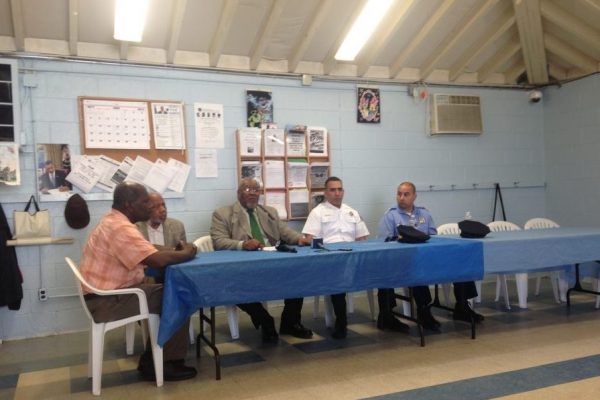WeWork Hard for Their Money
What it’s like to work for WeWork
“I drank the Kool-Aid and enjoyed the taste,” Rachel Wynn said. “But looking back it’s a lot of smoke and mirrors.”
Wynn is a former WeWork employee who believed in the company’s mission. She was, in the company’s lingo, ready to make a life and not just a living. But during her time at WeWork, Wynn says that her belief in the company’s authenticity crumbled.
WeWork, a startup valued at $16 billion, rents and manages shared office spaces throughout the world. WeWork offers businesses communal and individual space to work. The company entices potential customers with free beer, community events and the potential to network with the rest of WeWork’s members.

Scmidt’s Brewery/Photo Courtesy of WeWork
WeWork’s Northern Liberties location opened on June 1, 2016, in the old Schmidt’s Brewery building. WeWork chose Schmidt’s Commons because “it’s becoming a very appealing place to live with lots of housing renovation and construction,” a WeWork spokesperson said.
“I began to realize that the amount of work I was doing total was far beyond what I was making financially,” Wynn, a former Associate Community Manager at WeWork’s Dupont Circle location, said.
According to former employees and publically available data, Associate Community Managers earn roughly $42,000 per year. Working after business hours is demanded by the corporate culture, former employees said.
WeWork’s front line employees are expected to work 50-55 hours a week, according to a WeWork spokesperson. As salaried employees, WeWork’s front line workers are not eligible for overtime.
All employees earn competitive wages and benefits, said a WeWork spokesperson.
Community Managers (CM) and Associate Community Managers (ACM) are responsible for the day-to-day tasks that keep WeWork’s members happy and their buildings running smoothly. They handle client needs and issues, help to sell open office space and report to WeWork’s larger corporate structure, according to the job descriptions on the company’s website.
“The main responsibility of the Associate Community Manager at WeWork is to support the Community Manager. That’s in the context of taking on tours, basically checking in on members,” said Wynn. “One of the biggest things I did was member appreciation work: If someone got engaged I’d be the one to coordinate the delivery of champagne. I’d write a nice card or something like that.”
Another former employee confirmed the expected roles of the Associate Community Manager at WeWork, but also expanded on her displeasure with what she was asked to do while working for the company.

/Photo Courtesy of WeWork
“I was ordering catering, setting up and cleaning up after events, changing kegs, checking in guests, giving tours, and fluffing pillows, because no pillow should go unfluffed,” said Tara Zoumer, a former associate community manager in Berkeley, California who has sued WeWork. “The majority of the job is menial labor tasks, even if the company would like to tell employees their work is meaningful and they are ‘changing the world.'”
WeWork’s posted descriptions outline that CMs and ACMs are responsible for making sure WeWork’s buildings are fully operational and the members are satisfied.
“They’re [Associate Community Managers] working directly with the sales team for lead generation and on tours and sales conversion strategies,” said a WeWork spokesperson.
“They [Community Managers] are really managing the buildings,” said a WeWork spokesperson. “They’re also making recommendations to our chief products officer, our chief community officer, operations executives, our communications executives.”
The spokesperson said that both positions are manager-level and appropriately classified as salaried positions.
Kelly Burgart, the Community Manager for the WeWork Northern Liberties, is satisfied with her role in the new Philadelphia location.
“I started less than a year ago,” she said. “I started as an Associate Community Manager and I’m now opening an entire market for the company.” Before opening the Northern Liberties location, Burgart worked for WeWork in Boston and London.
Community Managers learn to manage construction, logistics, operations, communications management and sales. Burgart said that she considers her work to be managerial.
“I came into this market and in the first two weeks I set up meetings with whoever I determined to be an influencer and a leader in Philadelphia,” she said.
Burgart also said she’s found her passion at WeWork. Previously she worked in medical sales, where she felt pigeonholed by the limits of her job, she said.
“I’m managing keeping a building running and functioning — you know, managing a staff — but then also being in the background planning events for the future, being proactive about making sure we have tours,” said Burgart.
“I really am behind the mission here and what we’re doing. That being said, sometimes it is hard to create a hard stop [between work and life] because sometimes work doesn’t feel like work,” Burgart said. “I really think it’s about setting boundaries.”
WeWork expects its CMs and ACMs to plan and staff after-hours events for members of the community.
“In the evening it becomes a challenge because we do host events,” she said.
Burgart and her staff rotate working nights as needed. Burgart said that she tries to ensure that her staff are able to leave on time when they’re scheduled to work late the next night.
But if you ask Tara Zoumer, the former Associate Community Manager suing the company, these after-hours events stretch beyond the reasonable expectations of the position.

/Photo Courtesy of WeWork
“WeWork is notorious for their fun events,” Tara Zoumer said. “Few people are aware WeWork staff is required to stay onsite and occasionally required to attend parties, without compensation.”
“A full time position in the US is supposed to be limited to 40 hours a week with few exceptions. Employees at WeWork are not only working 9-6 PM, but being asked to come in early and stay as late as 12 o’clock at night. This pushed people to working 50, 60 or 70 hour weeks, without being paid for their additional time,” Zoumer added.
At first, Zoumer was concerned with WeWork’s expectation that ACMs and CMs use their personal cell phones for WeWork business. In California, employers must pay a reasonable percentage of employees’ cell phone bills if they are required to be used on the job. Zoumer said that while she waited for a response from WeWork, she continued to voice her concerns about being overworked in an understaffed building.
Zoumer initially brought her complaints to her manager and followed WeWork’s chain of command. Zoumer alleges that Chia Donati, WeWork’s West Coast Director, told her not to talk to other employees about their rights. A source with knowledge of WeWork’s situation disputes the facts of this alleged conversation.
“Speaking up about work conditions or asking too many questions to managers would deem you ‘negative’ to the work environment,” Zoumer said.
Zoumer said that she was told: “I should stop talking to people about their rights because their path is their path and I should let them discover it on their own.”
In November 2015, Zoumer was fired for refusing to sign WeWork’s updated Employment Dispute Resolution Program. A source with knowledge of the situation confirmed that this was the case and emphasized that WeWork’s actions were legal.

/Photo Courtesy of WeWork
Zoumer is suing WeWork for wrongful termination and various violations of California’s labor laws. Following the removal of her lawsuit to federal court, Zoumer’s lawsuit was ordered into arbitration on April 5, 2016.
Zoumer has also filed a complaint with the National Labor Relations Board (NLRB). Following a preliminary investigation, the NLRB found merit to aspects of Zoumer’s claim. Specifically, the NLRB will further investigate whether Zoumer was discouraged from discussing her rights as an employee, whether Zoumer was improperly terminated for exercising her rights and whether WeWork’s Employee Dispute Resolution Program contained clauses illegally barring Zoumer from access to the NLRB.
A source with knowledge of the situation was confident that WeWork had not acted illegally. The source maintained that when all facts are presented WeWork will be vindicated.
Burgart and WeWork’s spokesperson emphasized the company’s open culture. Burgart said she speaks with WeWork’s East Coast manager twice a week and is comfortable raising issues or concerns.
A WeWork spokesperson said that during the company’s “Thank God It’s Monday” meetings, employees are given the chance to raise concerns directly with the CEO. The spokesperson offered an anecdote about a member of the New York team being added to the company’s culture committee after raising a concern.
Rachel Wynn, however, had the opposite experience. In part, she believed that those in the New York office were able to air their complaints and concerns more effectively than those working in other cities.
“I felt like the communication could’ve really been better,” she said. “[Employees at] The New York offices can just walk into the CEO’s office and be like, ‘hey, there’s a problem,’ whereas we had to rely on phone and email.”

/Photo Courtesy of WeWork
Despite enthusiastically believing in WeWork’s mission and hoping to build a career at the company, Wynn said she became discouraged. She said that WeWork seemed motivated by sales more than employee satisfaction.
“I began to feel as though we were just cogs in a machine,” she said.







